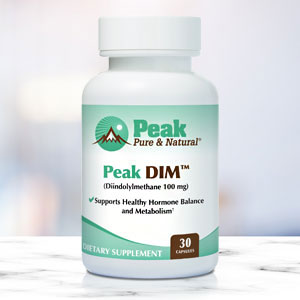Get Easy Health Digest™ in your inbox and don’t miss a thing when you subscribe today. Plus, get the free bonus report, Mother Nature’s Tips, Tricks and Remedies for Cholesterol, Blood Pressure & Blood Sugar as my way of saying welcome to the community!
5 factors that team up to destroy men’s testosterone

It’s no secret that men’s testosterone levels plummet with age, leaving many men with low libido and sexual dysfunction.
Even worse, low testosterone is associated with everything from poor heart health and blood clots to memory problems and disease-causing inflammation.
This has many men in their 40s and 50s turning to testosterone therapy, despite its risks.
However, according to a study from the University of Western Australia which delved into the health data of over 25,000 men, true issues with testosterone numbers don’t begin until much later than mid-life.
And not only that…
The research found that plummeting testosterone is linked to just five health and lifestyle factors.
What’s behind low T
#1 – BMI
The research showed that body mass index or BMI (a measurement that combines your weight and height to tell you if you’re overweight) was inversely associated with testosterone levels. In other words, as BMI goes up, testosterone levels go down.
The data also revealed a link between high BMI and elevated levels of a female reproductive hormone in men. The researchers found that only men with a BMI over 32 had higher estradiol (an estrogen hormone) concentrations.
For men, high estradiol can lead to:
- Infertility
- Erectile dysfunction
- Breast development
- Mood swings
- Fatigue
- Depression
#2 – Lack of exercise
In addition to BMI, the researchers found that exercise plays a role in whether or not men suffer from low testosterone. In fact, men who engaged in vigorous physical activity for 75 minutes or less per week saw significantly lower testosterone levels, with levels decreasing by 14.7 ng/dL on average.
#3 – Smoking
Men who are former smokers also have something to worry about when it comes to testosterone.
The study showed that smoker’s testosterone levels were approximately 9.8 ng/dL lower than that of men who had never smoked.
#4 – Relationship status
Interestingly, the study also found that married men (those who were otherwise in a relationship) also had significantly lower testosterone levels independent of age.
Those who were in a relationship showed an average or 16.4 ng/dL testosterone drop.
Although the study wasn’t designed to show why this drop happened, the researchers believe it could be due to a higher level of stress that can come with family responsibilities.
#5 – Health conditions
Finally, the data showed that poor health plays a significant role in men’s testosterone levels.
Health problems linked to low testosterone included:
- Hypertension
- Cardiovascular disease
- Cancer
- Diabetes
When testosterone begins its plunge
However, the study also had some good news.
The researchers say that for most men, testosterone decline didn’t begin until far later than most of us believe.
“One of the findings which we were struck by, was that after allowing for other factors, testosterone levels are in fact stable until the age of about 70 years,” explained lead researcher, Bu B. Yeap, MBBS, PhD. “After that age, testosterone levels declined with age, despite increasing levels of the pituitary hormone that drives testosterone production by the testis.”
And there’s more good news…
Knowing the factors that lead to testosterone loss gives men something they can do to preserve their T-levels despite aging, like maintaining a healthy BMI, staying active and mitigating the risk of other diseases such as diabetes and high blood pressure.
Editor’s note: Did you know that when you take your body from acid to alkaline you can boost your energy, lose weight, soothe digestion, avoid illness and achieve wellness? Click here to discover The Alkaline Secret to Ultimate Vitality and revive your life today!
Sources:
Testosterone Loss in Older Men: Factors Beyond Age in the Mix – MEDPAGETODAY
High estrogen – Cleveland Clinic
What Happens When Estrogen Levels Are Too High or Too Low? – MedicineNet
Different levels of estradiol are correlated with sexual dysfunction in adult men – Scientific Reports














